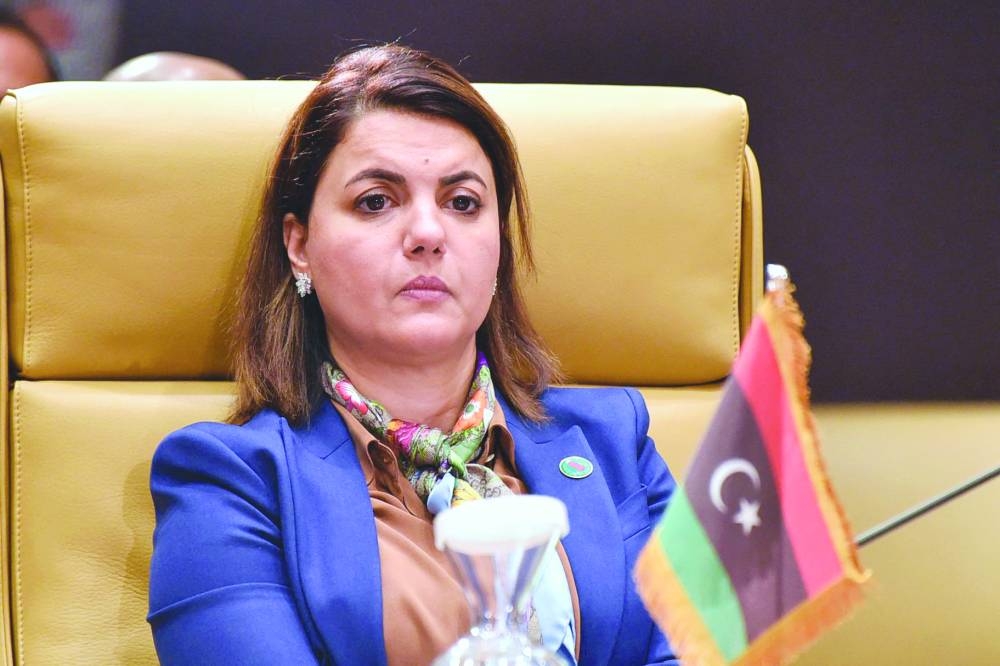Libya’s internationally recognised prime minister has suspended his top diplomat after she met her Israeli counterpart, with news of the encounter triggering demonstrations in a country that does not recognise Israel.
Oil-rich Libya, which plunged into chaos after dictator Muammar Gaddafi was toppled and killed in 2011 Nato-backed uprising, has been divided since 2014 between the UN-supported government of Prime Minister Abdelhamid Dbeibah in Tripoli and a rival administration based in the country’s east.
Angry protesters in Tripoli and other western Libya cities blocked roads with burning tyres and waved Palestinian flags on Sunday night, after it emerged that Najla al-Mangoush had met with her Israeli counterpart in Rome last week.
Analysts who spoke to AFP appeared to agree yesterday that Mangoush was the “fall person” for decisions made by Libya’s rival leaders.
She was “provisionally suspended and subject to an ‘administrative investigation’”, Dbeibah’s government said, hours after Israeli Foreign Minister Eli Cohen said the “unprecedented” meeting had taken place.
Mangoush’s whereabouts were uncertain yesterday.
Libya’s Internal Security Agency (ISA) said she had not been authorised to leave the North African country, following reports on social media that she had flown to Turkiye as the protests flared.
Mangoush “is on the travel ban list until she submits to the investigation”, said the security agency.
Turkiye’s Anadolu news agency, citing security sources, said Mangoush had already left for Istanbul following the diplomatic furore.
The Libyan foreign ministry had in a statement defended the meeting with Cohen as a “chance and unofficial encounter”.
The minister had reiterated “in a clear and unambiguous manner Libya’s position regarding the Palestinian cause”, it said, while accusing Israel of trying to “present this incident” as a “meeting or talks”.
Libya expert Anas El Gomati of the Sadeq Institute said that Dbeibah, his rival military strongman Khalifa Haftar and the eastern-based parliament that backs him all knew about the meeting.
They “have used Libya’s first female foreign minister as the fall person for decisions they all partook in,” Gomati said.
“It’s not about politics. It’s blatant scapegoating,” he told AFP.

Libya’s Foreign Minister
Najla al-Mangoush

Libyans burn tyres as they protest in Tripoli yesterday, following an informal meeting between the country’s foreign minister and her Israeli counterpart.
